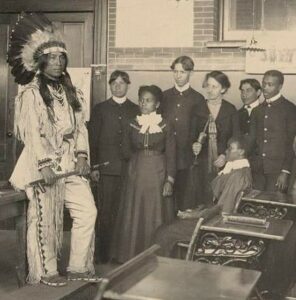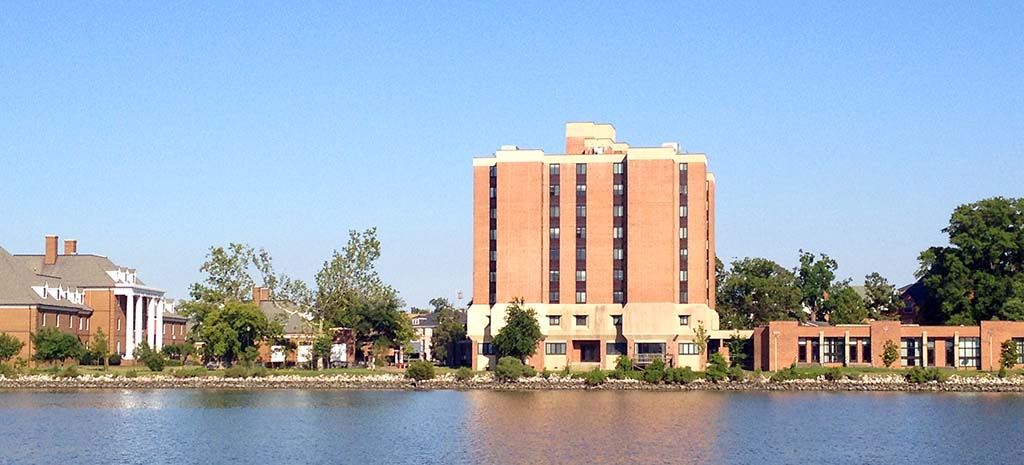Hampton University, located on the shore of Chesapeake Bay in Hampton, Virginia, was founded in 1868 by Samuel Chapman Armstrong, the son of a prominent missionary family that settled in Hawaii in the early 1800s. Armstrong was enrolled at Williams College in Massachusetts when the Civil War began. He volunteered for the Union Army, rose quickly in rank, and was given command of an African American military unit. By the end of the Civil War, Armstrong had obtained the rank of Brevet General.

After the war, Armstrong worked with the Freedman’s Bureau and observed the great need for education and vocational skills among the recently freed slaves. With those needs in mind, and supported by the American Missionary Society and a number of philanthropists, he founded Hampton Normal and Agricultural Institute. Hampton welcomed African Americans and, after 1877, Native Americans. All were trained at Hampton to exhibit good character, teach, work as skilled artisans, and provide leadership in their communities. Native American students continued to study at Hampton until 1923.
Booker T. Washington, the most famous 19th Century graduate of the institution, infused the “Hampton Idea” into the Tuskegee Institute, which he founded in 1881 in central Alabama. Hampton and Tuskegee were, by 1900 the most successful African American institutions committed to agricultural and vocational education, although they inspired similar colleges throughout the nation.
W.E.B. DuBois and John Hope, among other educators, became increasingly critical of the Hampton Idea by the early 20th Century. Partly in response to such criticism, Hampton, beginning in 1922, expanded its faculty and curriculum, raised admissions standards, and introduced a four-year bachelor’s degree program. The first B.A. degrees were awarded in 1926, and two years later, Hampton initiated its first graduate programs. In 1932, Hampton was accredited by the Southern Association of Colleges. From that point, Hampton recruited academically talented students from across the nation. In 1984, Hampton Institute changed its name to Hampton University as it continued to expand its graduate and research programs in the arts and sciences. Today, Hampton University has more than 5,500 undergraduate and graduate students enrolled and offers more than 50 degree programs.

